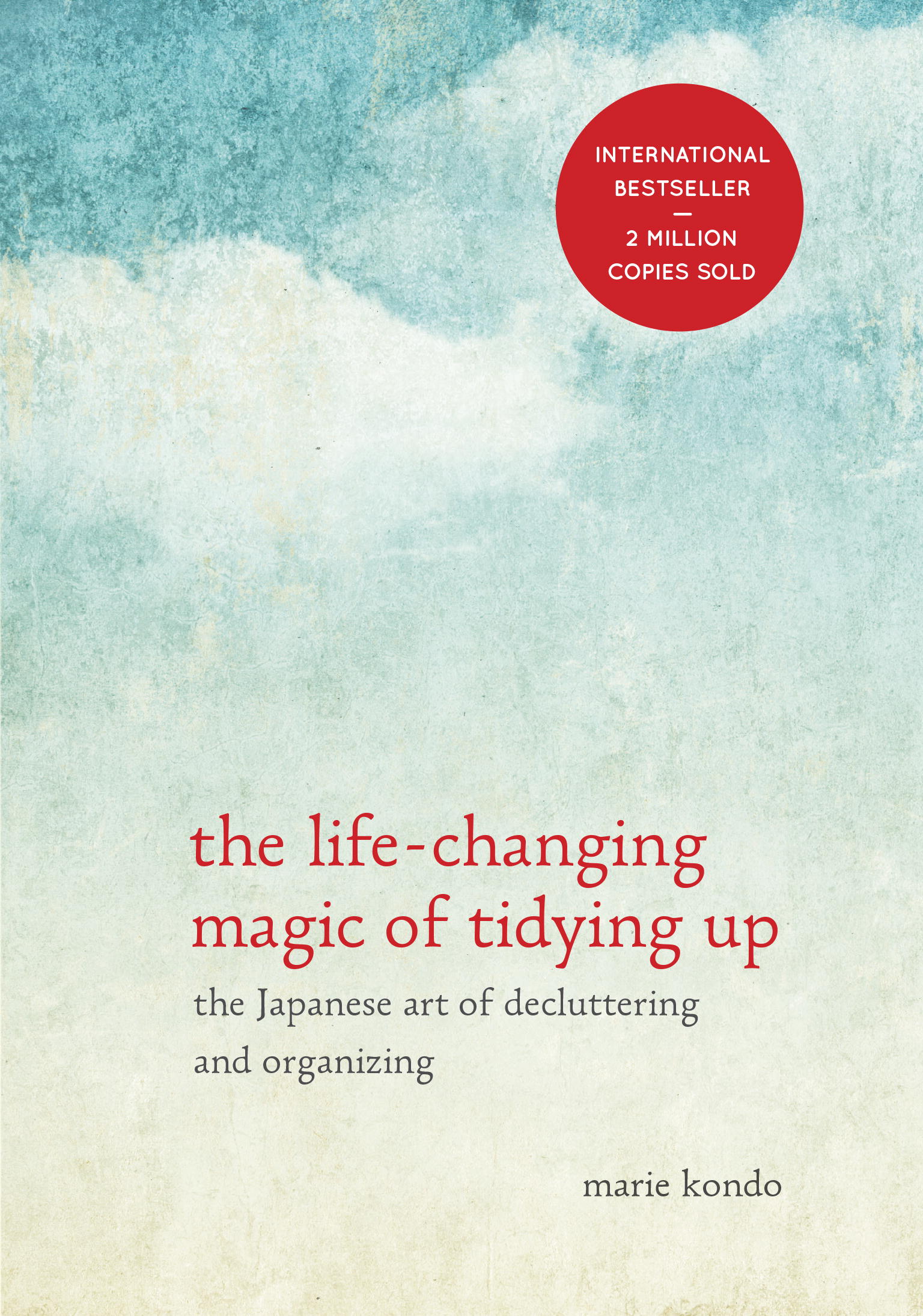Most of us have likely never contemplated the idea of thanking our socks or handbag when we get home from a long day’s work, but Japanese tidying consultant Marie Kondo suggests we do just that. If you think that’s a challenge, how about achieving a state with your belongings where you no longer have to do daily tidying? For someone with lifelong tendencies to accumulate clutter, the second statement seems even more magical than the first.
But it is magic we’re talking about here. Marie Kondo’s strong and enthusiastic client following and year-long waiting list testify to what she describes in her book “The Life-changing Magic of Tidying Up”. Kondo sets some traditional ideas about tidying up on their ear. Foremost among these set-aside ideas is the notion that tidying happens a little bit daily. Instead of an ongoing, losing battle against clutter, Kondo recommends a single intensive occasion of tidying that trims down your belongings to those that spark joy, each kept in its proper place. She makes the case that when this is done and we naturally take up the habit of returning things to their proper place when we finish using them, there is no ongoing tidying to do. Cleaning, of course, but not tidying. This is about becoming far more mindful of the possessions we own and our connection to them. It’s a major shift against the mainstream current of endless purchasing without connecting.
Perhaps influenced by her Shinto background, Kondo’s approach is intuitive and animistic, sensing and respecting the intelligence present in our surroundings and encouraging us to do the same. How many of us have stopped to consider how hard our shoes work to carry us and protect our feet? She has. How many of us have thought about how our clothes might prefer to be folded? She has. She recommends we make decisions about our possessions by physically picking them up and sensing how we feel about them. Then we can decide to keep or release them based on something deeper than the mind’s chatter of “Well, I need to hang onto this CD because I might listen to it again sometime”. It gives us an opportunity to process our past and release it, instead of hanging on. Then, when we see that it is time to release something, we do so with gratitude. Kondo even suggests that the items in our possession wish us well and enjoy serving us, and when we release them, they come back to bless us in different forms. In other words, even though it doesn’t attempt to wade into deep philosophy, this little book on cleaning up actually encourages trust in a loving universe!
That said, don’t imagine this book is all magic and no practicality. It includes a step by step guide for assessing the items we own. Kondo points out what we can easily release and helps to defuse any fearful tendency to stockpile items, or to mindlessly acquire more of what we already have. Her tone is enthusiastic and encouraging, yet brooks no nonsense about trying to hang on to things that don’t give us joy. This is how she has managed, in a simple book about personal organization, to achieve a guide to feeling connected to what matters in our life and letting go of what doesn’t.
And for the record, my sock drawer is a lot happier these days.
Pranada Devi is a communications professional living in Toronto, Canada. She is the Managing Editor of Parvati Magazine, and serves as an advisor on marketing communications for Parvati’s various projects. She is the editor for Parvati’s book “Confessions of a Former Yoga Junkie: A Revolutionary Life Makeover for the Sincere Spiritual Seeker”.












